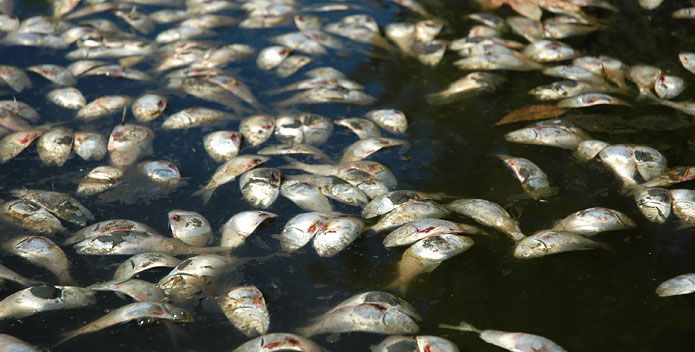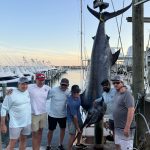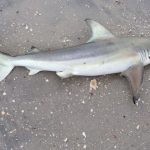Article courtesy: lancasteronline.com | By: Ad Crable | Originally published: June 23, 2015 | Please click here for original article.
Above: a fish kill in the summer dead zone on the Chesapeake Bay.
A slightly below-average, but still significant, “dead zone” has been forecast for the Chesapeake Bay this summer due to farm runoff flowing into the bay from the Susquehanna River.
The National Oceanic and Atmospheric Administration said an oxygen-depleted region of about 1.37 cubic miles will form in the bay later this summer.
That is about 10 percent below the long-term average.
“Farmland runoff containing fertilizers and livestock waste is the main source of the nitrogen and phosphorus nutrients that cause the annual Chesapeake Bay hpoxic region, which is also known as a dead zone,” the agency said in a news release.
“Fish and shellfish either leave the oxygen-depleted waters or die, threatening the bay’s production of crabs, oysters and other important fisheries.”
According to the U.S. Geological Survey, the highest nutrient loads entering the Susquehanna River are contributed by the Conestoga River and its tributaries, almost entirely within Lancaster County.
The dead zone forecasts are made by the University of Michigan.
“These annual forecasts help to remind federal and state policymakers and the public that insufficient progress is being made to reduce the size of these low-oxygen regions,“ said Don Scavia, director of the University of Michigan’s Graham Sustainability Institute.
The U.S. Geological Survey estimates that 58 million pounds of nitrogen were transported to the Chesapeake Bay from January to May 2015, an amount 29 percent below average conditions.
That below-normal nutrient loading combined with low river flow on the Susquehanna account for the smaller predicted dead zone.
Water laden with nutrients that flow into the bay create an explosion of algae growth. When the algae dies and sinks, bottom-dwelling bacteria decompose the organic matter, using up oxygen in the water.






